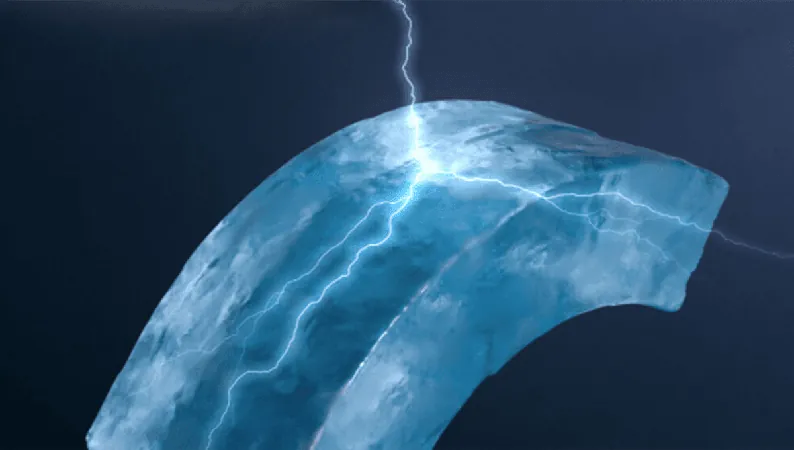
Shocking Shift: UK Space Agency to Merge with Science Department, But Is It a Smart Move?
2025-09-01
Author: Ming
The UK Space Agency Faces Uncertain Future
In a surprising turn of events, the UK government has declared plans to dissolve the 15-year-old UK Space Agency (UKSA) by merging it with the newly created Department for Science, Innovation and Technology (DSIT). While the news may come as a shock to the public, insiders reveal it has been anticipated for quite some time. This decision raises concerns among experts about the potential weakening of the UK's ambitions in space exploration and its standing within the European Space Agency (ESA).
A Cost-Cutting Measure?
The merger, set to be finalized by April, aims to eliminate redundancy and enhance oversight in decision-making according to government officials. However, this move also reflects the Labour government's strategy to cut civil service costs by 15% by the decade's end. Since 2023, the DSIT has been the primary funder of UKSA, making the integration seem almost like an administrative formality.
Insider Confessions: A Culture of Isolation
Sources close to the situation disclose that discussions questioning UKSA's relevance have circulated in government since around 2020. As the pandemic unfolded, the Department of Business, Energy and Industrial Strategy (BEIS) claimed that UKSA had become too detached from the broader governmental context, focusing too narrowly on ESA's objectives rather than addressing UK-specific needs in areas like transport and defense.
Budget Battles and Strategic Concerns
Historically, the UK's approach to space funding differs from its European neighbors. With over 80% of UKSA's budget funneled to ESA, critics argue that the agency has prioritized ESA's interests over national priorities. This perception has fueled arguments that UKSA needed reformation, leading to the policy team being seen as too dependent on ESA's vision.
A New Era or a Move Backward?
The UK government's attempts to regain control over its space investments were propelled by a Space Landscape Review completed in 2021, which recommended shifting the national space strategy away from UKSA to reduce it to merely an execution body. Subsequent evaluations revealed inefficiencies, sparking further scrutiny.
Concerns Among Industry Leaders
Amidst the merger discussions, several voices within the industry have raised alarms, particularly as the merger's announcement coincides with the upcoming ESA Council of Ministers meeting—where critical funding decisions will be made. Skeptics fear that this restructuring could hinder the UK's international stature within ESA, complicating interactions with global partners.
The Independent Space Agency Debate
Critics also point out that successful space-faring nations like France and Germany benefit from dedicated space agencies that foster strong national industries. The original intention behind establishing UKSA was to empower the UK to compete on that same playing field. Many worry that the shift back toward a BNSC-like model could lead to inefficiencies and lack of visibility in space policy.
The Future of UK's Space Aspirations?
The UK National Space Strategy, unveiled in 2021, laid out ambitious plans for the nation to become a leading player in satellite launch services and small satellite manufacturing. However, as the government embarks on this new chapter, the big question remains: Will this merger bolster or hinder the UK's aspirations in the competitive arena of space exploration?





 Brasil (PT)
Brasil (PT)
 Canada (EN)
Canada (EN)
 Chile (ES)
Chile (ES)
 Česko (CS)
Česko (CS)
 대한민국 (KO)
대한민국 (KO)
 España (ES)
España (ES)
 France (FR)
France (FR)
 Hong Kong (EN)
Hong Kong (EN)
 Italia (IT)
Italia (IT)
 日本 (JA)
日本 (JA)
 Magyarország (HU)
Magyarország (HU)
 Norge (NO)
Norge (NO)
 Polska (PL)
Polska (PL)
 Schweiz (DE)
Schweiz (DE)
 Singapore (EN)
Singapore (EN)
 Sverige (SV)
Sverige (SV)
 Suomi (FI)
Suomi (FI)
 Türkiye (TR)
Türkiye (TR)
 الإمارات العربية المتحدة (AR)
الإمارات العربية المتحدة (AR)